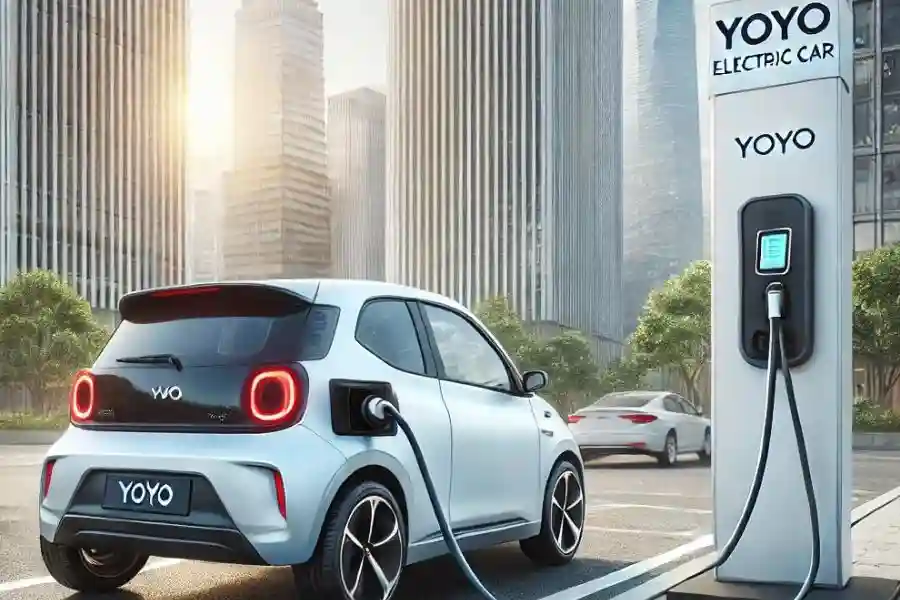The electric vehicle (EV) ownership experience is fairly new for most people, and some still contemplating whether they should buy an EV. The all-electric reality isn’t lost on the public – and everyone wants to know how it works and what’s needed to charge one up with electrons! One frequently asked question is: Does a Yoyo electric car need a special charging station?
To unleash the convenience and efficiency one can draw from EVs such as Yoyo, you first need to understand when your car should be charging. This Newsweek feature answers some of the biggest questions about Yoyo car charging – from what types of chargers and connections it utilizes, to whether or not special infrastructure is required.
Key Takeaways:
- Yoyo electric cars use a range of charging options, but special charging stations might not be required in all situations.
- Charging times and compatibility with different charger types can vary.
- Home charging is often a convenient solution but might need an upgrade for efficiency.
What is a Yoyo Electric Car and How Does it Charge?
Weighing in at 460 pounds and hitting a top speed of just over 60 KPH, the Yoyo is an all-electric commuter car designed with urban settings in mind. So obviously, as a small EV, it has a short range relative to bigger electric cars and is at its best for keeping things close-range around town or for daily commuting.
It is important to charge this vehicle; knowing its charging system will enable you to make the right decisions to maintain efficiency. Like most electric cars that are currently available, Yoyo makes use of lithium-ion batteries to store energy. There are also multiple ways that these batteries can be charged, including:
- Standard AC Charging: This is the numerous standard form of charging for electric vehicles, including the Yoyo. It utilizes a normal 220V outlet, which is often good for at-home charging, though the charging speed may be slow.
- DC Fast Charging: Yoyo cars can also take benefit of fast chargers, which use natural current (DC) rather than rotating current (AC) to charge the vehicle quickly.
As you could have guessed, the following is an eminent question: do these charging options require a custom Yoyo car charger to offer their full potential?
Does a Yoyo Electric Car Need a Special Charging Station?
The short answer is: that it depends on your needs.
Standard electrical outlets can power up Yoyo electric cars, but specialized charging stations make the process much faster and more energy-efficient. The Yoyo car can be fully charged at home with a standard AC outlet, but charging it will take longer than using an EV-specific charger.
To charge at faster rates, you may want a Level 2 or DC fast charging station. Unlike a standard indoor charging point, these chargers are built specifically for EVs and can shrink the time needed to charge up the Yoyo car.
- Level 1 Chargers: These are necessary, slow chargers that can plug into a normal wall outlet. They don’t need any special building and can charge the Yoyo over 8 to 10 hours.
- Level 2 Chargers: A Level 2 charger uses a 240V outlet, delivering faster charging speeds, and is typically found in homes with EVs. Establishing a dedicated charging station in your garage or driveway will cause home charging faster.
- DC Fast Charging: For fast top-ups, public charging stations deliver DC fast chargers, decreasing the time to charge from hours to just 30-40 minutes.
The Yoyo is thus able to charge using normal electrical outlets, but a fast charger could speed things up for you if this aspect outweighs others in the list of concerns set above.
The Benefits of Using a Dedicated Charging Station for Your Yoyo
Utilizing a reliable EV charging station offers several benefits, particularly for regular motorists or those who depend on their Yoyo for daily commutes. The advantages are:
- Faster Charging: A Level 2 or DC fast charger can fill your Yoyo’s battery in just a few hours or actual minutes, as opposed to a common outlet, which might take an exclusive night.
- Increased Convenience: A true station allows for smart charging, where you can plan charges during off-peak hours to keep money on electricity bills.
- Safety Features: Modern charging stations come with improved safety mechanisms, such as wave protection, guaranteeing that your vehicle’s battery stays safe during charging.
For many Yoyo owners, establishing a home charging station is a one-time buy that bears off in convenience and reliability.
Charging the Yoyo at Public Charging Stations: What to Know
As public charging stations grow in Malaysia, it’s even more convenient to charge your Yoyo on the go. But how do we have to prepare for using the public station?
It can plug in at most public chargers without requiring any special adapter—the Yoyo uses a CCS connector, after all. That said, some knowledge of the kinds of charging networks around is always helpful in advance:
- Tesla Superchargers: While designed for Tesla vehicles, some third-party adapters allow other EVs, including the Yoyo, to use these stations.
- ChargePoint and EVgo: Popular with universal charging points, these stations often support DC fast charging, which is compatible with the Yoyo.
- Municipal and Workplace Chargers: Many cities and employers offer free or discounted charging stations for EV drivers, providing convenient locations to recharge during work or errands.
Charging at public stations (though an increasingly popular option) will depend on the energy provider and might not always be paired with easy access to fast-charging options, accelerating things by 30-40 km per 10 minutes.
Home Charging for Your Yoyo: Installation and Costs
Yoyo is best plugged into your home charging setup as this way you won’t forget to charge it. A regular plug will work in a pinch, but most buyers choose to keep life simple with the installed Level 2 charger for maximum fast, clean power.
What to know when setting up a home charging station for your Yoyo:
- Price Range: The typical price range for installing a home charging station is between $500 and $2,000, depending on electrical upgrades.
- Installation: Installing the station may necessitate hiring an electrician, particularly if your home’s electrical panel isn’t already configured for high-voltage EV charging.
- Energy Usage: Regularly charging your Yoyo can certainly add to your home energy bill, but many utilities offer EV-friendly rates that let you charge for less during off-peak hours.
This setup gives you the most control over your vehicle’s charging and ensures it’s always ready when you need it.
How Long Does It Take to Charge a Yoyo Electric Car?
Charging times vary based on the type of charger you use:
- Level 1 Charger: 8-10 hours for a full charge using a standard 220V outlet.
- Level 2 Charger: 3-5 hours when using a 240V outlet.
- DC Fast Charger: 30-40 minutes for a rapid top-up at a public station.
Keep in mind that these times depend on the current battery level and environmental factors such as temperature.
Charging Time Comparison
| Charger Type | Estimated Time to Full Charge |
| Level 1 (220V) | 8-10 hours |
| Level 2 (240V) | 3-5 hours |
| DC Fast Charging | 30-40 minutes |
For most drivers, Level 2 home charging provides a balance between cost, speed, and convenience.
Conclusion
The query at the top of your answer is, “Does A Yoyo Electric Car Need A Special Charging Station?”—it does not need one, but a true charging install can speed up and enhance your charging knowledge. This could mean sticking with traditional outlets, strolling up to a home charging station, or, for those who rack up lots of miles per day, using public chargers.
How do you like to charge your Yoyo? Drop us a comment below, and make sure to read our other articles for more electric vehicle content!

